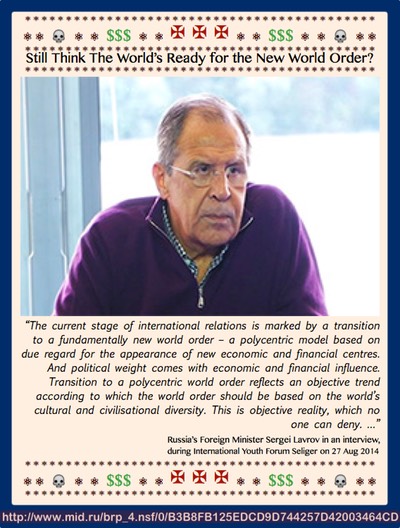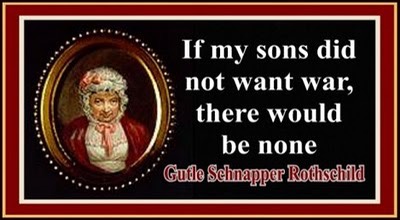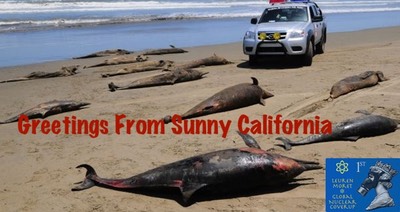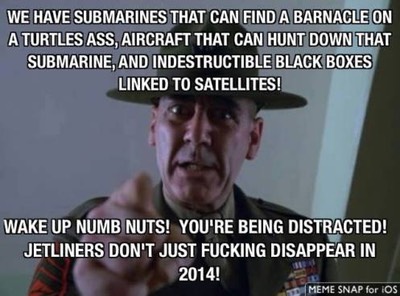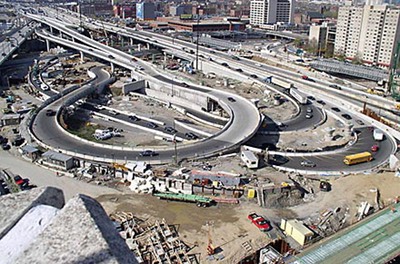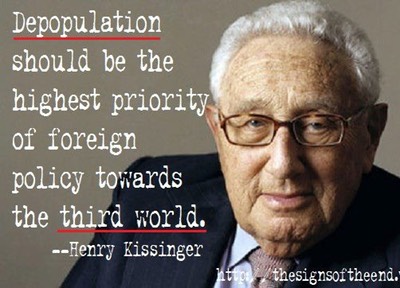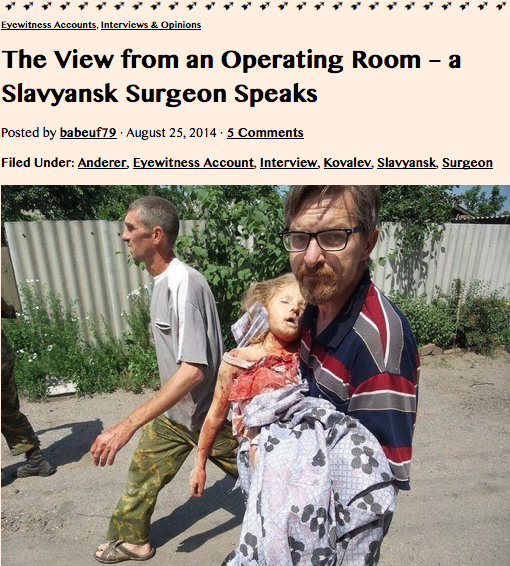Mikhail Georgievich Kovalev, a Slavyansk surgeon, photographed carrying a murdered child, a victim of Ukrainian atrocities.
Original: The View from an Operating Room of the Slavyansk Central Hospital
Translated from Russian by Alan and Alya Bailey / Edited by @GBabeuf and Gleb Bazov
Preamble: This is an online conference with a former surgeon of the Slavyansk hospital (he performed operations on Strelkov’s soldiers and left the town together with the retreating Militia). He now lives in Russia. He is the man pictured on the unforgettable blood-chilling photograph above, which has become one of the symbols of the war in Donbass, of the atrocities committed by the Ukrainian army, and of the irrepressible spirit of the people of Novorossiya.
Online Interview with Mikhail Georgievich Kovalev (a.k.a. Anderer)
It has been a month since I left my native Slavyansk. You can say that I have gotten used to and settled in the new place. Now I live in Russia. I thank all those who helped me materially and continue to provide me with emotional support. A separate thank you goes to San’ka. Without him, I would not have made it.
Q. Who are the people in Slavyansk for? (for Ukrainians, against them, indifferent? Before the events in question and now?)
There were no indifferent people left after the first shelling. Approximately three thousand people left the town before the Referendum on May 11, 2014. They were mostly the town bosses, rich people and obvious Ukrainian Nazi supporters. Not too many for a town of 150 thousand. By the middle of June around half of the population still remained in town, including six thousand men of Strelkov’s Militia. There would have been more people in the Militia but those with small children or with very old parents were not taken into the ranks. There was approximately the same number of active helpers, like myself. There are approximately thirty thousand people in the town now: old people, people who could not leave for different reasons, and those who returned
Q. “There were no indifferent people left after the first shelling” – did I understand you correctly that all those who remained supported the Militia?
I would say yes. The level of this support varied from active participation to “armchair sympathy”.
Q. What did it all start with in Slavyansk?
From the middle of March there had been some slight agitation and discontent about the [Maidan] coup. But it was quite sluggish and inert. On April 12, 2014, Strelkov came to town. After he had taken over the local police building there was a mass support rally with ten thousand people. I ran there to be in a cordon. That’s when the first people – fishermen – suffered from Ukrainian special forces. I operated on the first gunshot wound in Slavyansk then. The first mass deaths started from the 2nd of May in Andreevka when Ukrainian troops took up their positions on Mount Karachun. Fourteen wounded people were brought in. That was the start.
Q. How many people came with him? When did he come [to Slavyansk]? Was there a local [resistance] organization before his arrival?
He came with 10 or 12 men. One of them was a local guy. I know him well. Thank goodness, he is still alive and fighting.
Q. From where was Slavyansk fired at?
From Karachun, from the Kombikormoviy Plant, from the Krasniy Liman turnoff on the Kharkov-Rostov highway, from helicopters. From a plane too, but I only saw that once. I will repeat – I am only writing about what I saw with my own eyes, only what I myself know and feel.
Q. Is Strelkov “Putin’s man” and did he come here on Putin’s orders or was it by his own will? Has Putin abandoned Donbass? Your personal opinion.
I personally spoke to Strelkov twice. First time on the day that he entered the city and second time when it got really bad at the hospital with shortages of medicines and everything. I could never quite decide whether he was a GRU colonel or Che Guevara. I don’t have an answer to the second question. The armed rebellion of Donetsk started in my opinion without Putin’s approval and without any expectations about him. But with hope for his help.
Q. Were there any restrictive activities from the Militia towards the local population: curfews, restriction of movement, control of communication, photo and video and the like?
Straight away, the sale of alcohol was restricted from 10am to 8pm. All drug dealers and drug addicts were sent to dig trenches—almost immediately. The curfew was set approximately from the end of May, can’t remember precisely, but it wasn’t very strict. I didn’t notice any other restrictions. Mobile communication disappeared when the electricity supply stopped. But local landlines worked in some places, partially.
Q. Do you keep in touch with Slavyansk? What is going on there now? What is the public mood?
Same as it is in all occupied cities. Some people are leaving. Some are going to leave. Some are trying to live through it all. Some are fighting. Some are actively cooperating with the occupiers. Just like everywhere. It’s a war. We do communicate.
Q. I believe that many are interested to hear how you settled in your new place, what are your impressions? You have now settled into your life in Russia – are there any problems? Does anything make your uncomfortable?
Medical documentation is markedly different. Sometimes I have problems when filling it out. As for my impressions – well, I am not a tourist, so let’s wait a bit. Overall, in any event, there is more good than bad.
Q. Is any clean-up going on in Slavyansk and how is it going? Have any local authorities been established, i.e. – police, courts, prosecution?
Searching for militiamen and their families. Mostly with the help of neighbours who turn them in. There are no courts or other law institutions. Only some sort of hastily assembled police force. I don’t know on what basis they recruited people—I’ll ask friends when I have a chance.
Q. What is true and what is false from the reports of atrocities and reprisals by the APU and ‘punishers’?
From the Militia’s retreat on the July 4 to my departure from Slavyansk on July 12 I did not see any hanged or crucified people. I saw the distribution of sausages, which were tossed from a car as though to dogs, all of which was videotaped. What they do to the arrested people I don’t know. None of my arrested friends have gotten in touch with me. Let’s hope for the best.
Q. Some people say it’s a war between America and Russia. Some, that it’s Russian aggression against Ukraine. Others think the Militia is fighting against Bandera neo-Nazis and defending themselves. What is really going on there in two words?
An armed rebellion. Really it’s the same thing that happened in 1918 at the Don river during Kornilov’s times. A repetition of the Ledovyi Pokhod (Ice Crusade).
Q. Who is to blame for what’s happening on Donbass in the people’s opinion? Is it “westerners”, nationalists, USA and the West, oligarchs?
Slavyansk thought it was all Maidan’s fault—so it’s all those you’ve mentioned above who are to blame. Even Putin got his share of cursing.
Q. From the beginning of May they wrote about some astronomically huge casualties for the Junta during fighting in Slavyansk. How true are they? If you can, please give us your assessment of the losses sustained by the two sides. Thank you.
I am not a soldier. I am a doctor. Counting casualties is not my specialty. I will say this. The seriously wounded people were taken out of the town by the Militia. Both militiamen and civilians. Some went to Rostov, some to Crimea. I have no idea how they did it but many times I got phone calls from my colleagues asking me questions about those people. Only one of the patients that we operated on was a Ukrainian soldier—the pilot of the first downed helicopter. He is from Kharkov; he had a fractured hip. On our side the mortality wasn’t very high. I could not tell you any numbers anymore. On the 4th of July we burned all records and registers. I hope there’s no need to explain why.
Q. Thank goodness you are alive and I wish you all the best in the new place. How do you think it’s all going to end and when? Because you saw and felt it from the inside.
I fear it might end badly. And not soon. The Ukrainians have greater resources—both human and machines. I fear they might suppress the rebels with a great deal of blood. It will be very bad all over Ukraine but it will be worst in the Donbass. Nbody will be rebuilding anything or feeding and teaching and giving medical assistance. The Donbass will become something like the Chernobyl area—with Nazi guards and all other signs of occupied territory. This is my personal view. If I had hope of a different outcome I wouldn’t have left.
Q. Strelkov once wrote that the Militia in general consisted of people around forty years old. Younger people preferred either to hide or to leave. Was it really so? Why do you think was it like this? Were they being infantile or was it caused by Ukrainian propaganda, or something else? And how did the situation change, if it did, during the process?
The Militia did not recruit people without army experience, the disabled or people with small children. There were young people. I will never forget the conversation of two young Militia volunteers:
-Have you decided where to go?
-Still thinking
-I’ve decided, going to the Ryazan [Military Academy]
-And I’m probably going to the Orenburg [Military Academy]
I wouldn’t wish it on anyone to fight an army staffed with lieutenants that were in the Slavyansk Militia before going to a military academy.
Q. After Strelkov’s arrival in Slavyansk which side did the local police take? Did they all go over to the Militia? Or did they leave town? Or they simply didn’t care? What was it like?
Differently: part of them got scared; another part actively cooperated. Can’t tell you the ratio. Visually there was the same amount of policemen in the town. I cant tell you what it was like in reality.
Q. Were there any wounded from phosphorus ammunition?
There were. Fourth degree burns and respiratory tract burns. Five or six people, all peaceful residents of Semenovka. All dead.
Q. Great to see you Anderer! Can you tell me about your life? How’s work?
Great to see you too. It’s too early to tell. I’ve been working for less than a month. People’s attitude towards me is good. Both my wife and I got work to suit our specialities. Lots of working hours. We were promised extra work. The hospital gave us a flat to live in. Thank goodness we don’t have to sleep in the street.
Q. Anderer, you’re simply a war criminal according to the junta! You have to be killed as a witness. Do you realize all the responsibility for your words? Are you ready to repeat them under oath in the Hague Tribunal?
I hope I live to do that.
Q. I’ve got a strange question for you, Anderer. Why did you do all this in Slavyansk? What for? What made you do it—your duty as a doctor or something else?
I’m a resident of Slavyansk. It was my town, my people, my land. Now there are strangers there. You can try and understand it with your mind. Because if you can’t understand it with your heart—sorry.
Q. According to Ukrainian authorities, schools of the city of Slavyansk will be rebuilt and repaired by September 1. They also say that almost all the clinics in Slavyansk are now operational. [Note: the user proceeded to cite various Ukrainian sources, insinuating that Anderer was lying].
I’ll tell you what my friend stevedore used to say: “To bullshit is much easier than to carry sacks.” Till now, there is neither light nor water on the street where I used to live. And with respect to the “proclamation” that “almost all the medical clinics in Slavyansk are now working,” I will tell you this – in Slavyansk, before the commencement of the massive shelling by the Ukrainian military, all the medical institutions were operational. Do you understand the difference between a clinic and an institution (hospital), you little piece of shit?
Q. During the siege did you get any medicines from your health authorities? Because legally Slyavyansk residents were still Ukrainian citizens. Or was it just humanitarian aid and volunteers’ help? Was there any help from the Ukrainian authorities to the city?
The Ukrainian Health Authorities did not give us a single tablet. There were no salaries or pensions paid since May. All supplies were delivered by the militia.
Q. Anderer, what is the possibility of the resistance and partisan war organised by the people who are now under the Ukrainian occupiers? Ten, fifty, a hundred percent, or zero percent?
There is the resistance. That’s why the Ukrainians don’t go into the city at night. They get shot. They might start to get blown up soon.
Q. Great to see you, Anderer! Tell us about your day-to-day; how did you settle in? How are you fitting in at your new job?
Good to see you. It’s too early to tell. I’ve been working here for less than a month. They took me and are treating me well. They gave me and my wife jobs in our area of specialization. We get paid one and a half times the normal salary. Promised not to interfere if we need to take up additional work. They gave us living quarters next to the hospital, for free. Thank goodness, we don’t sleep on the street.
Q. If the Ukrainians are removed from there and everything is rebuilt are you coming back?
I said before – if I had any hope for it I wouldn’t have left.
Additional Questions and Answers from the “Global Gamble” Forum
Q. During the referendum in Makeevka people were queuing up to vote—don’t know what it was like in Slavyansk. The majority of people who voted for the DNR really thought that the DNR was some sort of middle stage before being united with Russia. Those who were for “united Ukraine” just ignored the voting. But things are not as people hoped. People are becoming disappointed as nobody expected a war that would ruin their already not very wealthy lives. How many people still support the DNR and how high is the disappointment in the choice they’ve made and in the Russian Federation?
I personally voted in the referendum and can confirm that the citizens of Slavyansk had huge hopes for this referendum. We all thought then that the government (even the Maidan one) can’t just ignore the people’s opinion.
Q. Please tell us the main events from the very start—from your first experience in field medicine in your hospital, to the very last operation. Our understandable impatience makes us very greedy for news from the front, but you are such an unusual war participant and the experience of this level hasn’t been shared on this forum yet.
Difficult to say. The injured were brought in in large numbers. Sorting them was our weak spot. There was a shortage of staff from the first days. By the 4th of July there were only four surgeons and nine nurses at the hospital. Minor medical interventions were performed by cleaners and patients with minor injuries.
Q. Mikhail, how many doctors stayed at their workplaces when the military operation started? Were they young people or ‘old army’? How were medications supplied—were there shipments from other areas or just from local warehouses?
We sent one young surgeon away—he had a newly born son. There were a few volunteers. An anaesthesiologist from France worked with us for two weeks. There was a doctor from Riga and an anaesthesiologist from Dnepropetrovsk. Doctors from other units helped us as well. We thought that there could be a peaceful conversation with the authorities. Nobody believed a war was possible. All the healthcare bosses and the hospital heads ran away in April. They stayed on the territory of Ukraine and now they are back. The hospital did not have much medication or material in store, they were all supplied by the Militia and volunteers. I have no idea where they got them from or how they managed to deliver them to us, but we did have a shortage of supplies.
Q. Some housekeeping questions. Slavyansk Central hospital worked, you kept on operating… Where did the funding come from? Where did the salaries come from and what was their amount? How were supplies organized? Food for the patients? Did the laundry work?
There was no funding, salaries were not paid then and still have not been paid. My wife and I did not get any money for May or June.
Q #1, Having seen a shell hole in place of the teacher’s house I decided to ask. It’s no secret that this war breaks all regulations and conventions of humane treatment of civilians—particularly the ban on use anti- personnel mines, chemical shells. As a doctor you must have seen the victims of the anti-personnel mines. You have seen what is surely the result of an anti-personnel mine.
Q #2. I spoke to some refugee woman from Kramatorsk (she left in the middle of June) who told me that injured mercenaries had been left behind or killed because they were a burden. Have you personally seen any at the hospital? She also told me that the dead soldiers had not been buried but were just covered with bleach to get rid of the corpses. Do you know anything about that?
My friends from the Militia told me about the mercenaries. I haven’t seen a single one. Probably because it’s true that the “injured are a burden” we, in our hospital, didn’t have any injured Ukrainian soldiers or mercenaries. Guys from the militia said that sometimes the Ukrainian army killed their injured or took them with them but I personally haven’t seen that.
SOURCE:
http://slavyangrad.org/2014/08/25/the-view-from-an-operating-room/
ORIGINAL:
http://glav.su/forum/4-politics/2441/message/2552819/#message2552819
Visitors to LM:GNC
Leuren Moret: Global Nuclear Coverup
- ❁ Currents
- ⚛ Radiation Omnicide 👥
- 🎥 UC, Davis, Katehi, Illuminati ✠
- 🌎✟☦ One World Religion 🎭
- ♞ Atlanticists v. Putin et al ⚪️
- ✈️ 3 NWO False Flags Connected ➷
- 🔪Ukrainian ✠ Wikileaks 👀 Interview 🎥
- 🚫 Out of Eurasia 🚫
- 💀 Jade Helm, International Implications, NWO Rollouts ⏰
- 🌿 Essential Oils, Nutrition, Frequencies & Health 🌺
- 🎯 R.F.D.E. | H.A.A.R.P. | N.L.P. ⚡️
- ⚛ Leuren Moret: Hiroshima, Nagasaki, Fukushima ⚛
- ❦ Moret & Battis: Jade Helm ❦
- 🌎 New World Order America 🇺🇸
- ⨳ Geopolitics Ukraine | E.U. Judo 🌍
- 👥 Template: Jade Helm
- ✠ America’s Domestic Pacification ✠
- ♨️ Chernobyl, Zaporozhye, Blackmail ⚛
- 💉 REBRANDING DISASTER🔪
- 👤 Eurasian Enigma Arises
- 🔴 Donetsk Nuclear Explosion ⚫️
- 🌍 21st Century Silk Road 🌏
- 🌍 Africa ☗
- ♞ Balkans, The Nameless Triangle
- 🌏 China 🌝
- 🌍 Eurasia 🔴
- 💣 Israel: Out of Erupt!
- ✠ Jesuits/Templar’s Origins & Aims
- 👺 SOROS ✠ NWO 📚 Hacked ✍
- ➴ Pyatt’s ✠ SOROS ♞ Breakfast 🍳
- Breedlove, GOOD RIDDANCE
- 🎱 Obama’s $3 Billion Eurocon 💸
- 🌍 A Psychopath’s Psychopath ✠
- 🔫 Global Hit Squad 💣
- 💀 Neo-Capitalist’s Slave Trade 💰
- 🇺🇸 Bio: Undermine Control
- ↷ Fine Evening For A Minuet ↶
- ✠ Slavery, Then & Now
- 💣 JCS Operation Northwoods
- ✠ The Three Secret Meetings
- Korea Yeonhee (연희) Nuclear Kabuki Theatre
- 🌍 Middle East 💣
- 💣 ISIL: Battered, Retreating 💀
- 🔥 Turkish Coup Attempt 💣
- ⚑ Muslim Brotherhood and ISIS ⚫️
- 🔫💰💉Daesh Terrorist Multi-Tool🔪💣💊
- 🚧 US and Turkey, NWO the Kurds 💸
- ✠ Hitler Bragged on Jesuits ✠
- 🍞 Their Daily Bread & Rubble 💣
- 🔪“Erdogan is Strengthening ISIS”💣
- 🇫🇷 Russia Reveals ISIS’ Money 💰💰
- "Raqqa's Rockefellers” ISIS Full Frontal
- ☞ Smashing Turkey’s Game❌
- 🌍 Juncker | E.U. | Direction ⤣
- 🔪 GLADIO Wolf Kills Russian Pilot ✈︎
- ✈︎ Washington’s SU-24 🎯
- 🌐 Turkey, NATO, War Crime? 🔎
- ➷ 449-Down, ISIL to Go 💣
- 🌎 North America 🔥✠
- 🇷🇺 Russia 🇷🇺
- 🇷🇺 PUTIN OVERHAULS KREMLIN 🏰
- ☛ Who Created ISIS ☚
- 🍳 Food Supply Compromised 🎱
- 🌍 Putin re Ceasefire Syria 🌐
- 👤 Cold War Re-Run 👀
- 🌐 Minsk 101 | Theatre of the Absurd 🌍
- 🌐 Geopolitical Original Sin 🌍
- ♘ Russian Troops | Turkish Border ♘
- 📚 Educating Charlie Rose 🔑
- 🌍 Lavrov's Munich Speech
- 🎱 US Embassy Media Fail 🎭
- ✠ ♛🃏 Putin’s Jar Of Spiders
- 🎱 MOSSAD’S ON THE DOORSTEP 💣
- 📄 This Document is Dynamite 📄
- ♔ The Golden Trap
- ❁ Russian Fusion-Fission
- ❁ Putin’s 7-Point Plan
- ❁ Russian Position Speech
- ✈︎ Ukraine, MH-17, Jesuits Flagged! BRICS Undermined?
- ⏰ Ukraine? 🔥 Bail Out! ✈️
- 💦👤 Psychotropic Zombification ☔️
- 💣 Odessa Trade Union Murders 🔥
- 🃏 Nothing Personal, Just Business 💰
- 💉 BioWeapons for Depopulation 💀
- ⚛ Nuclear Coverup Ukraine | Mines of Zholti Vody 💀
- 🔥 Unsustainable Ukraine 👥
- ☗ ASHES TO ASHES 💀
- 🔪Ukrainian Wikileaks 👀
- ☞ Dispatches From the Front 🔫
- 💣 The Ukrainian Failed State 🌍
- 🔑 Our Decisions Define Us🔑
- ✠ Child Abuse 💀
- 💣 Mozgovoi’s Murder 🔪
- 🎱 Yatsenyuk's Russian Threat 🔮
- ||| Prison Ukraine |||
- ✍ CyberBerkut Reports 👥
- ♨️ Crazy Arseniy’s -USED- Ukraine Fire Sale! ♨️
- ✝ AZOV CRUCIFIXION ✝
- 👤 Eyewitness Debaltsevo Cauldron 💀
- ✍ Historic Slaviansk Doctor Interviewed
- 💀 The Tragedy of Uglegorsk
- ♟ Jan. 2015 Minsk Fail 🃏
- ➷ Tochka Found, Debaltsevo Locked
- 🌍 World Facing Second Chernobyl
- ✈︎ MH-17 AND THE Jesuit Minuet
- ✈︎ MH-17, Jesuits Flagged!, Video
- 💀 Death’s Drummers
- 👤 DPR! Novorossiya Calling
- 💀 Ukraine’s Chernobyl Armor
- 🎱 Gas to Ukraine Blocked
- ❁ Global Nuclear Theatre: Donbass
- ✠ GHOSTS of the 51st BRIGADE
- ❁ Novorossiya: Strelkov Briefing
- 👤 Open Letter to President Putin
- ✈︎ MH-17 Dutch Interim Report
- 💣 Surrendering UA Murdered by Punatives
- ♟ Mutiny of the Euro-Integrators ♟
- ➹ View from Ukraine Operating Room
- ❁ Ukraine’s Violent Escalation
- ❁ Ukrainian Soldier’s Cry for Help
- ⧱ Occupied Ukraine ⧱
- ❁ US State's Nuland Directs Ukrainian Coup
- 📯 Ukraine Deputies Knew Before Maidan
- ❁ Health In 2015
- 💉 Vaccines 💀
- 🎥 Geopolitics, Jesuits & History
- 🎥 Rebranded ✠ The Jesuits ✠
- ⚛ Zaporhyze Nuclear Events & Geopolitics
- ❁ Fukushima Polar Vortex Radiation ❁
- 💀 Embrace, Enfold, Extinguish
- ✈︎ Fear of Flying . . . (1of4)
- ❁ Fukushima: Impact of Fallout On Oceans (Pt.1)
- ❁ Fukushima: Impact of Fallout On Oceans (Pt. 2)
- ❁ North America, Middle East and Fukushima
- ❁ DHS/Napolitano Berkeley Template
- ❁ Fukushima Radiation, Ecocide & Tesla Technology
- ✈︎ Flight 370 Downing
- ✈︎ MH370: The Follow-Up
- ❁ Domestic Radiation Issues
- ❁ Fukushima: Hawaii, Pacific Is. - Unsafe
- ⚛ Fukushima Reactors, Breakdown 1-6 ⚛
- 🌏 International Sites Featuring LM:GNC
- ❁ On To Mongolia 🎥
- 🎥 LKM On Fairdinkum Media 🎥
- ❁ Editorial Page
- ❁ Conversations 📬
- ❁ Waves
- ⚛ Radiation Around The Nation 🌎
- ⚛ Your Radiation #73/74, Sep 10 - 24, 2016 🌎
- ⚛ Your Radiation #71/72, Aug 27 - Sep 10, 2016 🌎
- ⚛ Your Radiation #69/70, July 30 - August 13, 2016 🌎
- ⚛ Your Radiation #67/8,--July 16-30, 2016 🌎
- ⚛ Your Radiation #65-6,--July 2-16, 2016 🌎
- ⚛ Your Radiation #64, July 2-9, 2016 🌎
- ⚛ Your Radiation #62-3, June 18 - July 2, 2016 🌎
- ⚛ Your Radiation #61, June 11-18, 2016 🌎
- ⚛ Your Radiation #60, June 4-11, 2016 🌎
- ⚛ Your Radiation #59, May 28 - June 4, 2016 🌎
- ⚛ Your Radiation #58, May 21-28, 2016 🌎
- ⚛ Your Radiation #57, May 14-21, 2016 🌎
- ⚛ Your Radiation #56, May 7-14, 2016 🌎
- ⚛ Your Radiation #55, Apr 30 - May 7, 2016 🌎
- ⚛ Your Radiation #54, Apr 23-30, 2016 🌎
- ⚛ Your Radiation #53, Apr 16-23, 2016 🌎
- ⚛ Your Radiation #52, Apr 9-16, 2016 🌎
- ⚛ Your Radiation #51, Apr 2-9, 2016 🌎
- ⚛ Your Radiation #47-50, Mar 5 - Apr 2, 2016 🌎
- ⚛ Your Radiation #46, Feb 27-Mar 5, 2016 🌎
- ⚛ Your Radiation #45, Feb 20-27, 2016 🌎
- ⚛ Your Radiation #44, Feb 13-20, 2016 🌎
- ⚛ Your Radiation #43, Feb 6-13, 2016 🌎
- ⚛ Your Radiation #42, Jan 30 - Feb 6, 2016 🌎
- ⚛ Your Radiation #41, Jan 23-30, 2016 🌎
- ⚛ Your Radiation #40, Jan 16-23, 2016 🌎
- ⚛ Your Radiation #39, Jan 9-16, 2016 🌎
- ⚛ Your Radiation #38, Jan 2-9, 2016 🌎
- ⚛ Your Radiation #37, Dec 26 - Jan 2, 2015|16 🌎
- ⚛ Your Radiation #36, Dec 19-26, 2015 🌎
- ⚛ Your Radiation #35, Dec 12-19, 2015 🌎
- ⚛ Your Radiation #34, Dec 5-12, 2015 🌎
- ⚛ Your Radiation #33, Nov 28 - Dec 5, 2015 🌎
- ⚛ Your Radiation #32, Nov 21-28, 2015 🌎
- ⚛ Your Radiation #31, Nov 14-21, 2015 🌎
- ⚛ Your Radiation #30, Nov 7-14, 2015 🌎
- ⚛ Your Radiation #29, Oct 31 - Nov 7, 2015 🌎
- ⚛ Your Radiation #28, Oct 24-31, 2015 🌎
- ⚛ Your Radiation #27, Oct 17-24, 2015 🌎
- ⚛ Your Radiation #26, Oct 10-17, 2015 🌎
- ⚛ Your Radiation #25, Oct 3-10, 2015 🌎
- ⚛ Your Radiation #24, Sep 26 - Oct 2, 2015 🌎
- ⚛ Your Radiation #23, Sep 19-26, 2015 🌎
- ⚛ Your Radiation #22, Sep 12-19, 2015 🌎
- ⚛ Your Radiation #21, Sep 5-12, 2015 🌎
- ⚛ Your Radiation #20, Aug 29 -Sep 5, 2015 🌎
- ⚛ Your Radiation #19, Aug 22-29, 2015 🌎
- ⚛ Your Radiation #18, Aug 15-22, 2015 🌎
- ⚛ Your Radiation #17, Aug 8-15, 2015 🌎
- ⚛ Your Radiation, August 1-8, 2015 🌎
- ⚛ Your Radiation, July 24-31, 2015 🌎
- ⚛ Your Radiation, June 26 - July 24, 2015 🌎
- ⚛ Your Radiation, June 19-26, 2015 🌎
- ⚛ Your Radiation, June 12-19, 2015 🌏
- ⚛ Your Radiation, June 5-12, 2015 🌎
- ⚛ Your Radiation, May 29 - June 5, 2015 🌎
- ⚛ Your Radiation, May 22-29, 2015 🌎
- ⚛ Your Radiation, May 15-22, 2015 🌎
- ⚛ Your Radiation, May 8-15, 2015 🌎
- ⚛ Your Radiation, May 2-8, 2015 🌎
- ⚛ Your Radiation, April 24 - May 1, 2015 🌎
- ⚛ Your Radiation, April 17-24, 2015 🌎
- ⚛ Your Radiation, April 9-16, 2015 🌎
- 🔥 Fire at Oak Ridge 💥
- 💥 NANOWEAPONRY 💥
- 🐄 Radioactive Cattle Teeth, Fukushima 🏭
- 📰 WikiLeaks 🔎 NSA and More 🔦
- ✨Nano ‘Hall of Mirrors’⚡️
- ⚛ 💀 ⚛ into the Hudson River 🌎
- 🚿 Flint, Metropolitan Eugenics 💀
- 🌍 Existential Threat? ☛NATO☚
- 💉 Gates, Poroshenko; Conspiracy, Government 🎯
- 💉 Gates-Poroshenko ZPG Ukraine 💀
- 💀 Paris Massacre Perpetrators 👤
- 🔪 Delgado, Mind Control ♟
- 🌎 MOST NUKED NATION ON EARTH 🌎
- 🎯 Radio Frequency Directed Energy 🎯
- ⚛ Please, Don’t Pick the Mutants 🌻
- ⨳👤⨳ Space-Based Weapons Ban
- √ Saudi OP Strategy Success
- ♨️ Gallery ♨️ Chernobyl Fire ♨️ 2015 ♨️
- 🌍 Monsanto Backdoors E.U.
- 🎉 Crimea’s 1st Anniversary Album 🎉
- 🌏 21st Century Eschalon
- 📰 International Headline Watch 🌏
- ✄ Prouty Place ✑ CUT THE BULL ✂︎
- 🌏 How To Wreck The Environment
- 🇯🇵 Plutonium Isotopes Off Japan
- 🌍 Depopulation Agenda: Europe 👤
- 🔪💉Cease Covert Depopulation Letter🔪💉
- ❁ Dutch Apologize for MH-17 Lies
- ❁ Pacific Dead from Fukushima
- ❁ Strange Fish Story
- ❁ Blood Composition of Monkeys Altered Near Fukushima
- ❁ Secret Army Bases
- ⚛ Fukushima Plutonium Effect ⚛
- ➷ RAND Demographic Military Power ➷
- ⚛ Depleted Uranium | DNA Damage ⚛
- ❁ Hidden Genocide: by Dr. Ernest Sternglass
- ❁ Space Preservation Act of 2001
- ❁ 1972 Rothschild Ball
- ❁ Unsafe Radwaste Disposal
- ♆ Fallout and Reproduction of Ocean Fish Populations
- ⚛ Radiation Around The Nation 🌎
- ❁ Lifestyle
- ❁ Archive
- ⚛ 61 Years of Omnicide ⚛
- 📻 Nanoparticle Toxicity with Leuren Moret ❦
- ❁ New Bombs and War Crimes in Fallujah
- ❁ Global Climate Change . . .
- ⚛ International Radiation Distribution ⚛
- 💀 Depleted Uranium’n’DNA 😱
- ❁ UC Regents Lose Nuke Pgm
- ❁ DU-Trojan Horse
- ❁ LM:GNC (Pt1)
- ❁ LM:GNC (Pt2)
- ❁ World Uranium Weapons Conference 2003
- ⚛ Radionuclide ReMobilization Abatement
- ❁ "America First" Transcription
- ❁ "Whale Archive" Transcription
- ⚛ ⚛ ⚛ Location, Leuren Moret: Global Nuclear Coverup ⚛ ⚛ ⚛
- ❁ Glossary
- ❁ Contact
# # #
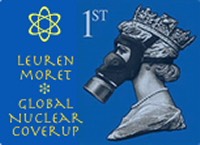
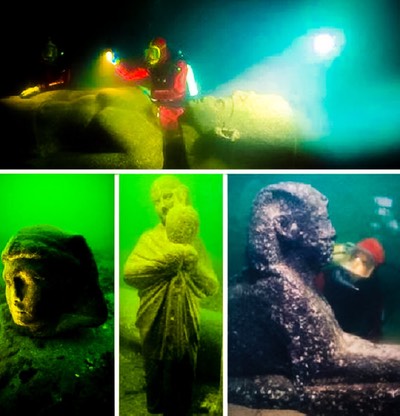

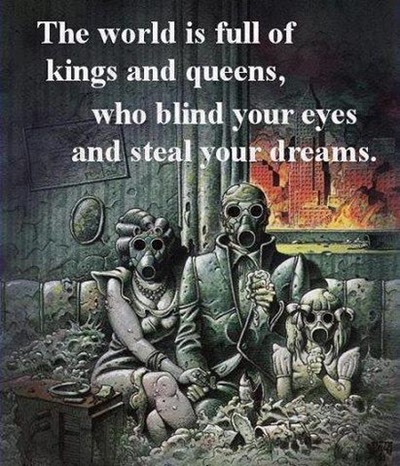
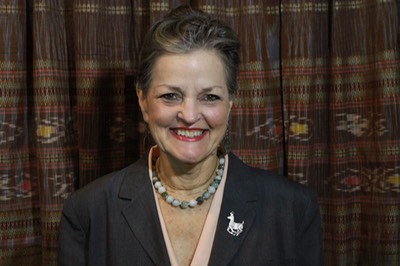

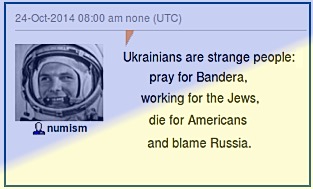
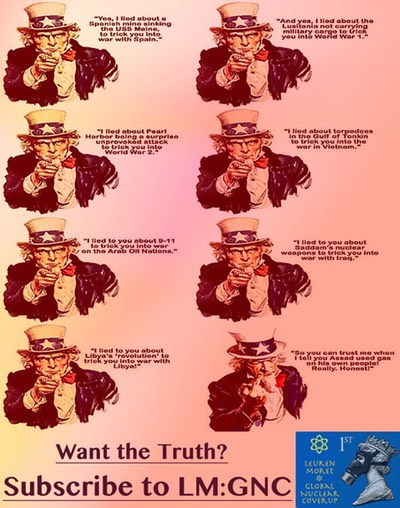
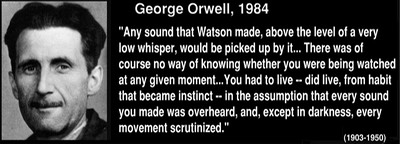
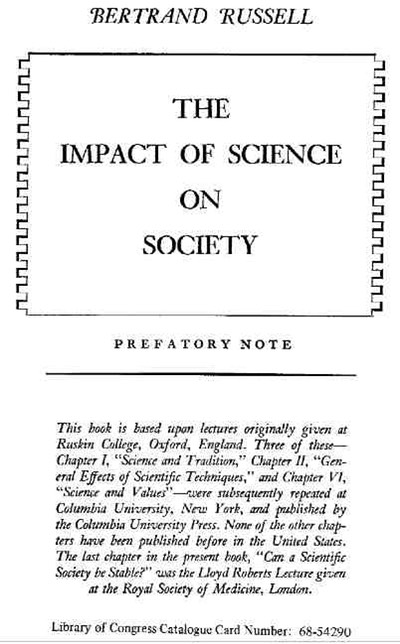
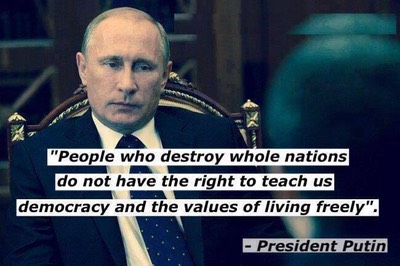
![20120724 - 7-24-2012 The More We Learn - quote from David Rockfeller -_thumb[2]](../../_Media/20120724---7-24-2012-the_med_hr.jpeg)
